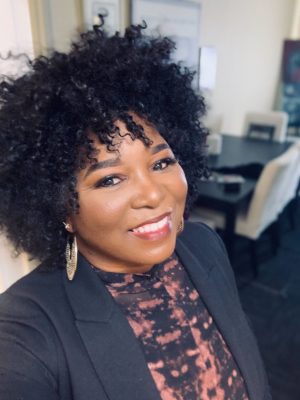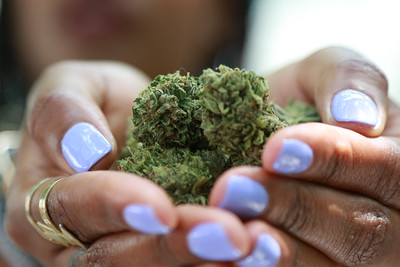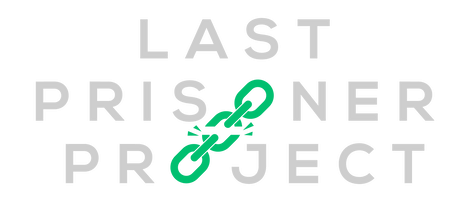
Mayflower is proud to celebrate Black History Month!
This year’s official theme is Health and Wellness, and we are ecstatic that we can celebrate Black communities and Black contributions to the cannabis industry. We can all agree that cannabis is medicine, and the Black communities’ contributions to health and wellness initiatives and institutions are monumental.
Black communities have a strong history of fighting for inclusion and accessibility in the health and wellness industries. According to the founders of Black History Month, the Association for the Study of African American Life and History (ASALH), “Black people have embarked on self-determination, mutual aid and social support initiatives to build hospitals, medical and nursing schools, and community clinics.” Many of these clinics were built by grassroot organizations, such as the National Association of Colored Women and Black Panther Party. In a time when many white Americans had access to doctors and clinics, Black communities were forced to build their own. As the ASALH describes, these Black-led organizations had to “provide spaces for Black people to counter the economic and health disparities and discrimination that are found at mainstream institutions.” These initiatives and organizations helped provide more health practitioners and better representation in the mainstream health industry.
 Roz McCarthy is an extraordinary example of a Black cannabis advocate, entrepreneur, and educator!
Roz McCarthy is an extraordinary example of a Black cannabis advocate, entrepreneur, and educator!
McCarthy is the founder and CEO of Minorities for Medical Marijuana (M4MM), a non-profit organization whose mission is “focused on providing advocacy, outreach, research, and training as it relates to the business, social reform, public policy, and health/wellness in the cannabis industry.”
Estrohaze journal describes Roz McCarthy as an “industrious business leader” who “is an inspiring example of what happens when outstanding business acumen is combined with a commitment to community advancement and a vision of a better tomorrow.” McCarthy, who has decades of experience in senior level executive pharmaceutical sales and hospice, left corporate America and launched M4MM in 2016.
In an interview with Estrohaze, McCarthy describes personal health afflictions her family members have faced that drove her passion for cannabis advocacy and reform. She reports in this article that she felt the need to start M4MM so that she could focus on the medical aspects of cannabis because she wanted her son, who has Sickle Cell, to be able to protect himself.
Beyond just informing and protecting her own family, McCarthy is committed to bringing minorities into the cannabis industry from top to bottom. She tells Estrohaze, “We have several programs. One of them is called Ready Set Grow which is our internship program where we match students from predominately HBCU’s with paid internship opportunities. This past summer we were able to connect four African American men to either full-time employment or paid internships.”
In 2017, McCarthy was recognized by High Times Magazine as one of the top 100 influential people in Cannabis. She also serves as a guest Cannabis Social Equity/Social Justice lecturer at Southern University Law School and Florida A&M University Law School. McCarthy is a leader, advocate, and businesswoman we sincerely look up to and celebrate this Black History Month!
When speaking of Black contributions and contributors to health and wellness and the cannabis industry, we cannot celebrate without also recognizing the injustices towards Black persons and other minorities that have been ongoing.
 Cannabis was a legal substance until 1970.
Cannabis was a legal substance until 1970.
While cannabis had been regulated by many states in the 1920s and 1930s with the Marihuana Tax Act of 1937, due to “prejudices and fears” surrounding Mexican immigration to the U.S., the Controlled Substances Act (CSA) of 1970 officially outlawed cannabis for any use, including medical. President Richard Nixon was a major player in this illegalization of cannabis, and much of the banning of cannabis was a political move rather than a heath concern. In 2016, John Ehrlichman, one of Nixon’s primary councilmen and assistants, revealed that the War on Drugs was racially motivated:
“The Nixon campaign in 1968, and the Nixon White House after that, had two enemies: the antiwar left and Black people. You understand what I’m saying? We know we couldn’t make it illegal to be either against the war or be Black but by getting the public to associate the hippies with Marijuana and the Black people with Heroin, and then criminalizing both heavily, we could disrupt those communities. We could arrest their leaders, raid their homes, break up their meetings, and vilify them night after night on the evening news. Did we know we were lying about drugs? Of course we did.”
Over the last fifty years, many recognize how the War on Drugs hurt Black and other minority communities more than it solved pressing health and crimes crises.
Aaron Morrison with the AP reports, “[T]he loser [of the War on Drugs] is clear: Black and Latino Americans, their families and their communities. A key weapon was the imposition of mandatory minimums in prison sentencing. Decades later those harsh federal and state penalties led to an increase in the prison industrial complex that saw millions of people, primarily of color, locked up and shut out of the American dream.”
In the United States, cannabis has been politicized, first with anti-Mexican and Hispanic political tropes in the 1920s and then with anti-Black rhetoric in the 1960s and 1970s. Instead of having cannabis as a natural health and medicinal option, it has become a politicized weapon, and minorities have suffered most.
With cannabis becoming increasingly accepted, we are slowly moving towards de-stigmatization. With cannabis legalization, we all carry the responsibility to right the generational wrongs that have been committed against Black and Hispanic communities because of cannabis.
 One of Mayflower’s most treasured partnerships is with the Last Prisoner Project (LPP).
One of Mayflower’s most treasured partnerships is with the Last Prisoner Project (LPP).
There are over 40,000 persons in prison for cannabis-related offenses, even in states that have since legalized cannabis for either medical or recreational purposes. The Last Prisoner Project’s mission is to set them free.
Committed to cannabis criminal justice reform, the Last Prisoner Project aids with “legal intervention, public education, and legislative advocacy.” This incredible organization not only works to release cannabis prisoners, but they tirelessly strive to remove the cannabis crimes from criminal records and help these individuals re-enter society. LPP provides scholarship opportunities, housing, transportation, employability skills trainings, and financial wellness counseling.
LPP also supports families of those who are imprisoned for cannabis: “A portion of LPP’s funding goes directly to currently incarcerated constituents pursuing education while incarcerated, as well as the children of our currently incarcerated constituents who are particularly in need of financial assistance for educational resources while their parent is incarcerated.”
While Last Prisoner Project fights for those in prison for cannabis, you can help! Your donations to LPP go directly to helping the incarcerated persons and their families. You can donate online or at all Mayflower dispensaries.
Black History Month 2022 is focused on health and wellness, and we recognize the huge debt owed to Black communities due to the politically charged injustices carried out over decades. Mayflower is committed to expanding minority representation and opportunities in 2022, and we look forward to sharing with our patients all we have planned in the coming year.
References (APA)
Cannama. (n.d.). Exclusive: Meet Roz McCarthy – Consummate, businesswoman, cannabis revolutionary. Estrohaze. Retrieved January 26, 2022, from https://estrohaze.com/roz-mccarthy-revolutionary/
High Times. (n.d.). The 100 most influential people in cannabis. High Times. Retrieved January 31, 2022, from, https://hightimes.com/culture/the-winners-of-the-high-times-100/
Last Prisoner Project. (2022). About us. Last Prisoner Project. https://www.lastprisonerproject.org/
Last Prisoner Project. (2022). Support. Last Prisoner Project. https://www.lastprisonerproject.org/
Little, B. (2017, August). Why the US made marijuana illegal: Fear of Mexican immigrants led to the criminalization of marijuana. History Stories. History.com. https://www.history.com/news/why-the-u-s-made-marijuana-illegal
LoBianco, T. (2016, March 24). Report: Aide says Nixon’s war on drugs targeted blacks, hippies. CNN Politics. CNN.com. https://www.cnn.com/2016/03/23/politics/john-ehrlichman-richard-nixon-drug-war-blacks-hippie/index.html
Minorities for Medical Marijuana. (2022). About. Minorities For Medical Marijuana. https://minorities4medicalmarijuana.org/
Morrison, A. (2021, July). 50-year war on drugs imprisoned millions of Black Americans. The Associated Press. Retrieved January 28, 2022, from https://apnews.com/article/war-on-drugs-75e61c224de3a394235df80de7d70b70
Murray, K. (2021, August). The War on Drug’s ongoing impact on Black people. Addiction Center. Retrieved January 28, 2022, from https://www.addictioncenter.com/news/2021/08/war-on-drugs-impact-on-black-people/
Roz McCarthy. (n.d.). Home [LinkedIn page]. LinkedIn. Retrieved January 31, 2022, from https://www.linkedin.com/in/mhmobilegroup/
Schlosser, E. (1994). Reefer Madness. The Atlantic. Retrieved January 28, 2022, from https://www.theatlantic.com/magazine/archive/1994/08/reefer-madness/303476/
Disclaimer
MARIJUANA PRODUCTS ARE FOR USE ONLY BY ADULTS 21 YEARS OF AGE OR OLDER. KEEP OUT OF THE REACH OF CHILDREN. THERE MAY BE HEALTH RISKS ASSOCIATED WITH CONSUMPTION OF THIS PRODUCT. Neither the contents of this document nor the product referenced therein have been analyzed or approved by the Food and Drug Administration (FDA). There is limited information on the side effects of using this product, and there may be associated health risks. Marijuana use during pregnancy and breast-feeding may pose potential harms. It is against the law to drive or operate machinery when under the influence of this product. KEEP THIS PRODUCT AWAY FROM CHILDREN. There may be health risks associated with consumption of this product. Marijuana can impair concentration, coordination, and judgment. The impairment effects of Edibles may be delayed by two hours or more. In case of accidental ingestion, contact poison control hotline 1-800-222-1222 or 9-1-1. This product may be illegal outside of MA.
PLEASE CONSUME RESPONSIBLY.